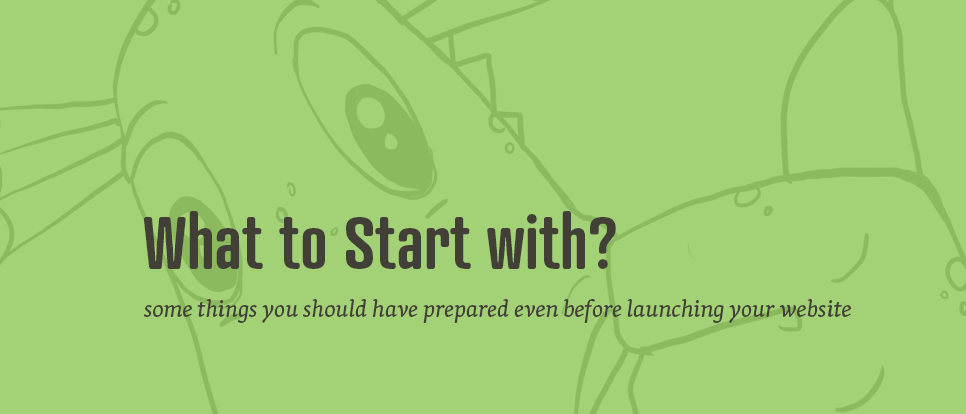1. Set yourself up for proper search engine optimization
We already had so much to say about the so called SEO (short for search engine optimization) on our blog, that we even made an individual checklist just on this subject. But what is the gist of it all? First of all, you should choose proper names and descriptions for the individual pages of your website (mainly the homepage), that will be then more visible in search engines or when sharing your content for example on social media. Also remember how to correctly refer your website.
2. The importance of first impression
And lets stay with proper names and descriptions for a while longer. Because naming your homepage and giving it a short description is most important when sharing the link to your website with Facebook (or other social networks) and naturally for search engines. So how should you properly name and describe your homepage? Find out here.
3. Have some quality content to start with
A regular dose of engaging content should be the main reason why your visitors will keep returning to your website. At the same time, you should have something prepared even before you launch your project, and also know how to best represent it, whether by the proper use of our content creating tools, good typography, or practical focus on SEO, or perhaps by coming up with the most interesting form for your content.
4. Use social networks
Today, you probably already have a social profile at least on Facebook or Twitter. And if not, you really should reconsider it – if only for better propagation of your web project. But what should you remember when dealing with social networks? It's very important to decide for the right strategy, how to communicate with your visitors or customers, or how to visibly connect your website to each of your social profiles.
5. How and why to use user comments section?
Using the Debug web service, you can enrich for example your blog posts with a comments sections, where your readers can share their thoughts on your work. But before you activate comments on your website, ask yourself: do I really want to?
6. Follow the movement on your website
With the Google Analytics web service that you can easily connect to your website, you can learn a lot of interesting things like how many people visit your website, how long do they typically stay on it, what interests them the most or from where did they even get to you. You can read the overview of the most interesting information Google Analytics can show you in our special article.
7. Make a representative look for your website
Although catching attention by a quality content is very important for the success of your web project, the first thing a visitor notices when arriving to your website is its look. So don't be scared to tune it up, whether by uploading your own web icon, using minimalistic visual patterns, or general orientation in your administration and its design abilities. And as for the design itself, its abilities and a possibility to select a brand new one, that's a story on itself.



